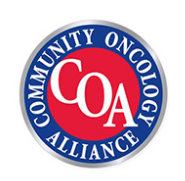
Targeted Therapies in Oncology
- December 1, 2022
- Volume 11
- Issue 17
- Pages: 12
As Cancer Screenings Start Back Up, Inequities Persist

Results of a study conducted by the Community Oncology Alliance showed significant reductions in screenings at the beginning of the COVID-19 pandemic.
When the COVID-19 pandemic forced patients with cancer to stay home and take extra precautions, it also forced thousands of others to delay routine screenings that would inform them of a potential cancer diagnosis. Results of a study conducted by the Community Oncology Alliance (COA) showed significant reductions in screenings at the beginning of the COVID-19 pandemic. Screenings in April 2020 compared with April 2019 showed breast (–85%), colon (–75%), prostate (–74%), and lung (–56%) cancer screenings all decreased.1
At the time of the study’s publication, lead study author Debra Patt, MD, PhD, MBA, FASCO, said that as cancer becomes more advanced, it becomes a ticking time bomb; the impact of these delayed screenings will be felt for years as rates of morbidity and mortality increase.
Now, a study from COA showed that in 2022 breast cancer screenings have increased from their 2020 lows, but screening disparities among White patients and patients from minority backgrounds have been exacerbated.2
In an interview with Targeted Therapies in Oncology™, Patt, executive vice president of policy and strategic initiatives at Texas Oncology and member of the COA Board of Directors, discussed the highlights of these studies and what the lasting impact of delayed cancer screenings could look like for patients. Moreover, she addressed what has been done about this issue and what still needs to be worked on.
TARGETED THERAPIES IN ONCOLOGY™: What are some of the highlights of the original study COA conducted?
PATT: We characterized utilization of screening, diagnostic, and treatment services for cancer in 2020 vs 2019. What we observed is that for the 6 million patients in the study, there was a substantial decrease in screens for cancer for patients with breast, colon, lung, and prostate cancer observed during 2020.
These decreases in screenings also translated into decreases in cancer-related biopsies, surgeries, and treatment. One could then estimate that the natural consequences of delays in diagnosis is that patients will present with later stages of cancer, which will increase morbidity and mortality related to those cancers.
How does that look in a real-world scenario?
[For instance,] I’m a breast cancer specialist and if we were to diagnose a patient with stage III estrogen receptor positive breast cancer this year, it would have been stage I. If that happens, the patient would [now] require more treatment; they will have to have chemotherapy, they will have to have a more aggressive surgery, and they will have to have radiation instead of maybe just surgery. What we’re observing at this point is what we call a stage migration, where patients are diagnosed at later stages of cancer, but I think that true estimates of cancer mortality will take several years to manifest.
How have ethnic minority groups been impacted by delays in care?
For individuals who are ethnic minorities, and individuals of lower socioeconomic status, they already have barriers to appropriate health care. During the pandemic those barriers were magnifi ed and it was more difficult for these patients to get health care.
What were some of the efforts you were a part of to address this issue?
We identifi ed a universal hotline [for people to contact so they] would understand the availability of screening studies in various communities.
That’s important because you have states where screening is available, and generally if you have commercial insurance, then screening, like a mammography, is covered. However, there’s a lot of individuals that don’t have health insurance. I live in the state of Texas, where there are about 30 million Texans, and 5 million Texans without any health insurance, so screening becomes a problem when you must pay for it.
REFERENCES:
1. New study finds COVID-19 substantially reduced cancer screenings, diagnosis, and treatments in 2020. Community Oncology Alliance. October 21, 2020. Accessed August 9, 2022. https://bit.ly/3bG1Ipk
2. Breast cancer screening rates improving from pandemic lows, but recovery remains unequal for certain minority groups. Community Oncology Alliance. March 14, 2022. Accessed August 9, 2022. https://bit.ly/3A6QrYr
Articles in this issue
about 3 years ago
BI 1810631 Shows Early Antitumor Activity in NSCLCabout 3 years ago
Novel MPS1 Inhibitor Shows Early Signs of Activity in Third-line HCCabout 3 years ago
Updates Results Support Repotrectinib in ROS1+ NSCLCabout 3 years ago
Oncology Societies Recognize and Address Burnout During Conferences





































